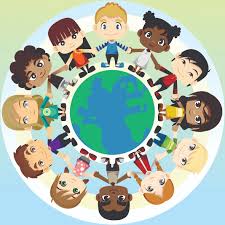Communication for the "new normal"

by Carlos Ayala Ramírez (1)
Meeting Point Magazine Article N ° 132
New normal or new reality?
We have often heard that after the pandemic we must prepare for the “new normal”. This term is ambiguous because it assumes that before the pandemic there was a “normal” situation and that, after the pandemic, the new conditions would require a new normality. But what is normal? Is the economic, social and political system where we come from and where we are now normal? Are the many forms of injustice normal, nurtured by an economic model based on profit, which does not hesitate to exploit, discard and even kill human beings? Is it normal for a part of humanity to live in opulence, while another part sees its own dignity unknown, despised or trampled on and its fundamental rights ignored or violated? Is Credit: Normal Internet a world where migrants are not considered worthy enough to participate in social life like any other? Pope Francis has expressed his concerns about what may happen after the crisis. He expresses that the worst reaction would be to fall further into a consumer fever and new forms of selfish self-preservation. And it reveals four deep wishes to counteract these tendencies: “Hopefully, in the end there are no longer the 'others', but only a 'us'. Hopefully this is not another severe episode in history that we have not been able to learn from. May we not forget the elderly who died from a lack of respirators, partly as a result of healthcare systems dismantled year after year. I hope that so much pain is not useless, that we take a leap towards a new way of life and finally discover that we need and owe each other, so that humanity is reborn with all faces, all hands and all voices , beyond the borders that we have created ”. Along these lines, he stressed that this "is not the time for indifference", because the whole world is suffering and has to be united to face the pandemic. "It is not the time of selfishness", because the challenge we face unites us all and is no respecter of persons. "This is not the time to continue making and selling weapons", spending large sums of money that could be used to care for people and save lives. "It is not the time to be forgotten", he hopes that the crisis we are facing will not make us put aside so many other emergency situations that carry with them the suffering of many people. Consequently, for Pope Francis, “normality” will not be the mere continuation of the past, nor will it be the cancellation of this hard moment, but rather a putting into play of all our resources and creativity to transform the present into the link of a new opportunity. To achieve this change, the pope advocates a social organization based on "contributing, sharing and distributing with tenderness, not possessing, excluding and accumulating." Systems of social organization must be designed in which participation, care and generosity are rewarded, instead of indifference, exploitation and private interests. In this framework, the Pope considers that “the media can help us feel closer to each other, to perceive a renewed sense of unity of the human family that encourages us to solidarity and serious commitment to a more dignified life for all ”. The parable of the good Samaritan is also a parable of the communicator. For the Pope, Samaritan mercy is not reduced to a mere empathic feeling, it also includes action to alleviate the suffering of the other and the risk of sharing their destiny. The encyclical [Fratelli tutti] , following the story of the Evangelist Luke, synthesizes the Samaritan's reaction as follows: he sympathizes, approaches, bandages the wounded man, mounts him on his own horse, takes him to the inn and takes care of him. A whole itinerary of what proximity means, what it means to be “human”, what it means to be a brother.

Now, how is the value of "proximity" expressed in the use of the media and in the new environment created by digital technology? The Pope discovers an answer in this parable of the Good Samaritan which, in his opinion, is also a parable of the communicator, because whoever communicates becomes a neighbor, becomes close. Furthermore, the Good Samaritan not only approaches, but takes charge of the half-dead man he meets on the side of the road. Jesus inverts the perspective: it is not about recognizing the other as my similar, but about being able to make myself similar to the other. Therefore, from the perspective of “proximity”, communicating means becoming aware that we are human. On the contrary, when the main objective of communication is to induce the consumption or manipulation of people, we are faced with a violent aggression like the one suffered by the man in the parable: beaten and abandoned by bandits. The parable of the Good Samaritan, then, becomes a parable of the communicator when, according to the Pope, communication becomes "perfumed oil for pain and new wine for joy." When the "luminosity does not come from tricks or special effects, but from approaching, with love and tenderness, who we find injured on the way". In this sense, one can speak of the media and information revolution as a great challenge that requires renewed energy and a new imagination. Along these lines, it is mentioned that "the Internet can offer greater opportunities for meeting and solidarity among all." But for this to happen, it is not enough to go through the digital “streets”, that is, simply to be connected. It is necessary that the connection is accompanied by a true encounter. The pope points out that the world of the media cannot be oblivious to concern for humanity, but is called upon to express solidarity. Consequently, the digital network can be a place rich in humanity: not a network of cables, but of people. “Isolation, no; closeness, yes. Culture of confrontation, no; culture of the encounter, yes "

Towards a new reality: the contribution of the social media Rather than talking about a "new normal", Pope Francis raises the need to build a "new reality." He has been emphatic in stating that to get out of the pandemic it is not only necessary to achieve a cure against Covid-19, but also for the large human and socio-economic viruses. Along these lines, he proclaims that "it is time to eliminate inequalities, to repair the injustice that undermines the health of all humanity." He explains that simply going back to what was done before the pandemic may seem like the most obvious and practical choice; “But why not move on to something better? Why reinvest in fossil fuels, monocultures and destruction of the rainforest, when we know that this exacerbates our environmental crisis? Why take back the arms industry, with its terrible waste of resources and its useless destruction? They are proactive questions of change that require responsible answers. For Pope Francis, we cannot allow ourselves to write present and future history with our backs to the suffering of so many. Hence his new questions that represent real challenges and that do not allow detours: Will we be able to act responsibly in the face of the hunger that so many suffer, knowing that there is food for everyone? Will we continue to look the other way with a complicit silence before those wars fueled by desires for dominance and power? Will we be willing to change the lifestyles that plunge so many into poverty, promoting and encouraging ourselves to lead a more austere and humane life that enables an equitable distribution of resources? Will we as an international community take the necessary steps to curb the devastation of the environment or will we continue to deny the evidence? It is time, then, to put ourselves to work urgently to design and generate inclusive social organization systems that enable abundant life. This is what the Pope calls a "fair and caring society." Social media can and should contribute to that purpose. This is what the pope has stated in his different messages on the world days of social communications. There he exposes specific and decisive forms of this contribution: option to communicate in proximity; use the power of communication at the service of encounter and inclusion; communicate hope and trust and in the face of the proliferation of fake news, cultivate the truth. In short, put the social function of the media to produce. Let's see some assumptions and arguments of this approach

Faced with what the Pope calls the "sins of the media", that is, misinformation (manipulating the news), slander (telling lies with impunity), defamation (violating the right to a good image) and coprophilia (love to scandal, to morbidity), three ethical demands are proclaimed: to love the truth, to put communication at the service of the encounter and to ensure respect for human dignity. This love of truth does not have an abstract sense, but a very concrete one. Truth, for the Pope, “is telling families torn by grief what has happened to their missing relatives. It is true to confess what happened to the minors recruited by the violent actors. Truth is recognizing the pain of women victims of violence and abuse. […] Every violence committed against a human being is a wound in the flesh of humanity; every violent death diminishes us as persons. […] Violence begets violence, hatred begets more hatred, and death more death. We have to break that chain that is presented as inescapable ”. For its part, using the power of communication at the service of meeting and inclusion means taking seriously the needs, anxieties and hopes of the other. Position it as a reference and light of communication. And one of the fundamental requirements for this to be the case is the critical examination regarding the language used to communicate reality, which not infrequently ends up covering it up or distorting it, depending on whether it favors one's own interest or ideology. The third requirement for communication that respects and fosters the value of human dignity has to do with the recovery of historical memory. Faced with a culture of fleetingness and oblivion, Francisco urges not to fall into the temptation of "turning the page." In the encyclical Fratelli tutti (n.249), the Pope affirms: “one never advances without memory, one cannot evolve without an integral and luminous memory”; “We need to keep the flame of the collective conscience alive, witnessing to future generations the horror of what happened”; [hay] "to awaken and preserve the memory of the victims, so that the human conscience is strengthened more and more against any desire for domination and destruction"; [hay] remember those who "in the midst of a poisoned and corrupt context were able to regain their dignity and with small or large gestures they opted for solidarity, forgiveness, brotherhood." Regarding the digital media, the Pope makes a critical assessment: they can strengthen fraternity and solidarity or they can hinder them. They can hinder it "if they become a way of avoiding listening, isolating themselves from the presence of others, saturating any moment of silence and waiting, forgetting that silence is an integral part of communication." On the other hand, they can favor it when “they help to share, to stay in contact with those who are far away, to make the encounter possible again and again”. When speaking of the shadows that characterize this world, he associates digital communication with those shadows. Above all, “when it becomes a kind of spectacle that can be spied on, watched, and life is exposed to constant control […] Each individual is“ the object of gazes that poke, strip and disclose, often anonymously . Respect for the other is shattered ”. For this reason it is stated that current digital communication "is not enough to build bridges, it is not enough to unite humanity." In sum, Pope Francis' proposal points towards an open and creative communicative style that favors the construction of a new reality; that it does not give all the prominence to evil, but that it tries to show possible solutions, favoring an active and responsible attitude in the people to whom it is addressed ”. This implies introducing a new perspective in the approach to communicated reality: “to offer men and women of our time narratives marked by the logic of“ good news ”, that is,“ a constructive communication that, rejecting prejudices against for others, foster a culture of encounter that helps to look at reality with authentic confidence ”.
1 Professor at the Hispanic Institute of the Jesuit School of Theology (University of Santa Clara, CA). Retired professor from the UCA El Salvador; former director of Ysuca.






